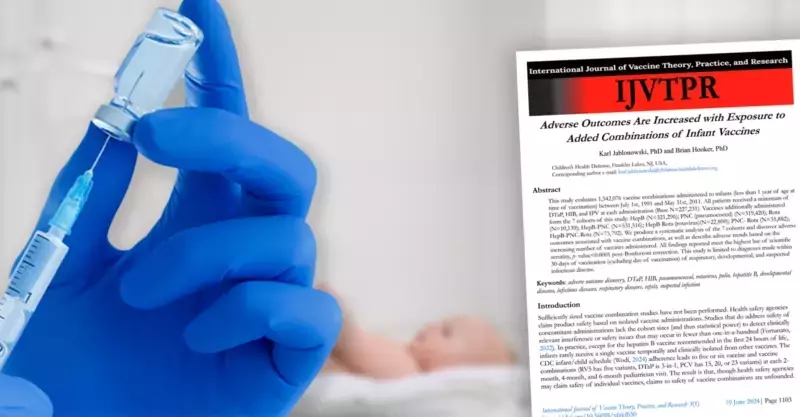
A recent research article published in the International Journal of Vaccine Theory, Practice, and Research has sparked considerable debate. The study, conducted by scientists from Children’s Health Defense (CHD), examines the impact of administering multiple vaccines simultaneously on infants and young children. The findings suggest that the incidence of vaccine-induced diseases escalates dramatically with each additional vaccine administered. This alarming discovery raises critical questions about the safety of current vaccination practices and highlights the need for more comprehensive safety studies.
Key Findings and Implications of the Study
In a meticulously detailed investigation, researchers analyzed over 1.5 million infant vaccine combinations administered across various schedules. The study revealed that the risk of adverse health outcomes, including infections and developmental delays, increases exponentially with each added vaccine. For instance, a two-month-old infant following the CDC's recommended immunization schedule could receive up to eight vaccines at once, significantly raising the likelihood of complications.
The research team found that infants receiving a combination of DTaP, polio, HIB, pneumococcal, and rotavirus vaccines were 24 times more likely to be diagnosed with obstructive chronic bronchitis within 30 days post-vaccination compared to those who received only a subset of these vaccines. Other notable risks included respiratory diseases, failure to thrive, and leukocytosis. These findings underscore the potential severity of combining multiple vaccines and emphasize the importance of informed decision-making in pediatric healthcare.
According to CHD Chief Scientific Officer Brian Hooker, "Each additional vaccine more than doubles the number of diseases detected in the study." This statement highlights the critical need for parents and healthcare providers to consider these risks when making vaccination decisions for young children. Senior Research Scientist Karl Jablonowski further emphasized, "Parents and practitioners must be aware of these potential, very serious outcomes."
The U.S. Centers for Disease Control and Prevention (CDC) has not conducted safety studies on the combined effects of its recommended vaccine schedules, despite infants often receiving multiple vaccines concurrently. This gap in research is particularly concerning given the widespread adherence to the CDC’s immunization guidelines.
The study’s implications extend beyond immediate health concerns. It calls for a reevaluation of current vaccination protocols and underscores the necessity for thorough safety assessments before recommending combined vaccine regimens. The findings also highlight the importance of transparency and communication between healthcare providers and parents, ensuring that all potential risks are fully understood.
From a journalistic perspective, this study serves as a powerful reminder of the ongoing need for rigorous scientific inquiry into public health practices. While vaccinations have undeniably saved countless lives, this research emphasizes the importance of balancing preventive measures with careful consideration of potential side effects. Ultimately, it encourages a more nuanced approach to pediatric healthcare, prioritizing both safety and efficacy in protecting our youngest and most vulnerable population.
